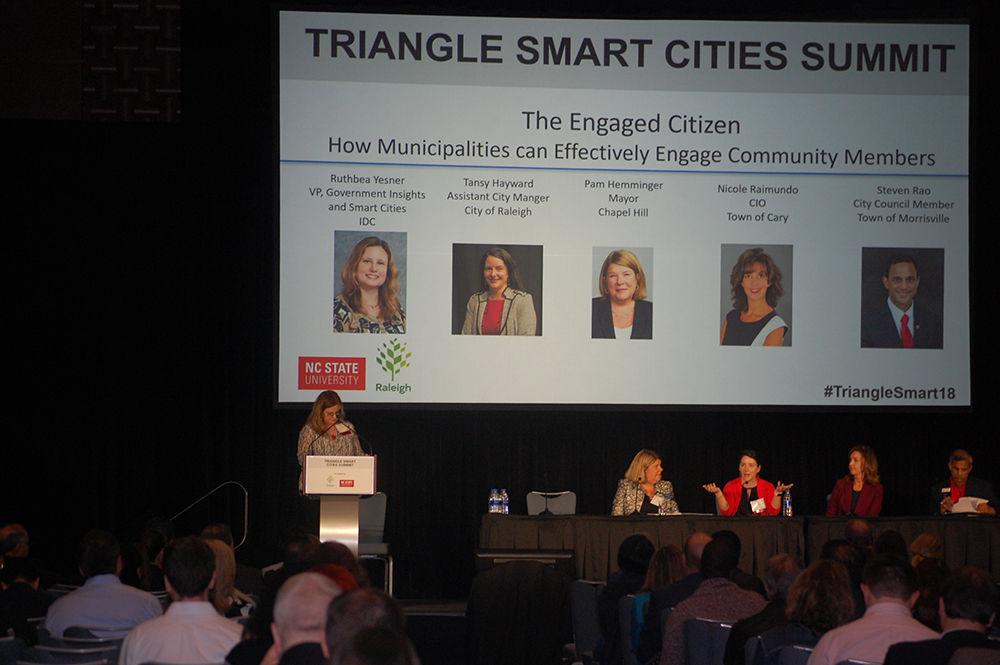On Wednesday, Oct. 31, NC State and the city of Raleigh co-hosted the second annual Triangle Smart Cities Summit at the Raleigh Convention Center.
The event had presentations by over 30 speakers, including Mayor Nancy MacFarlane and NC State Chancellor Randy Woodson.
The Smart Cities movement has been gaining speed in recent years, and Raleigh is currently in the process of becoming one. Noah Otto, the right-of-way services manager for the city of Raleigh and the event coordinator, explained what a smart city is and why it’s important for the city to develop.
“It’s a city that uses technology through such things like the IoT – that is, the internet of things – in making a more connected city that is able to be more efficient, more reliable, and also improves the quality of life,” Otto said. “And that is the reason why the city looks at it, is because… it goes back to services and how we serve our residents, to live with them, our community, and I think that’s how Smart Cities really applies to the city of Raleigh.”
The internet of things, or IoT, is the set of all physical devices, such as smartphones, that work together to gather and share information about a person or a place, like Raleigh. Otto and the city of Raleigh are working to find ways of using that information which can improve people’s lives.
Amy Lubas, the director of strategic projects for the Office of Partnerships and Economic Development at NC State, oversaw the university’s participation in the project. Lubas discussed how data collection within cities can be used to enhance the lives of their residents.
“How can they use all this information they have and make their city better,” Lubas said. “… Generally, it’s about making a city a smarter place to live based on collecting data and finding ways to make smarter decisions through the gathering, analyzing [and] use of information that you’re collecting.”
For NC State, Lubas said, the summit was an opportunity to connect the research being done at the university with resources in the city and surrounding municipalities and industries.
“There’s just an implosion of the amount of data out there, of the information that’s being collected, and the potential is just so great and continues to grow,” Lubas said. “So, how do we all work together to tap that, and find a way to use that, and to make it useful and to make our lives better.”
Otto said that the city sees the Triangle Smart Cities Summit as a way to identify overlap. Companies and organizations all over Raleigh are already working to improve the internet of things and create new infrastructure on data sharing and collection. The summit gathers them all in one place, so they can collaborate.
“I think now we have just gathered enough that it’s really started to push and open the doors,” Otto said. “Instead of it being a siloed approach in the past, we’re looking at it being inclusive and having multiple people come together to make it better.”
The summit has already resulted in a partnership between the city of Raleigh and well-known technology companies such as Alexa*, which allows citizens to ask questions about the city such as waste pickup dates or water expenses. Otto said that they are also working on a partnership with the app Waze, so that users can report issues that are dealt with by the city, such as potholes.
Next year, Lubas and Otto are looking at possibilities for making the summit more accessible to the public.
*Editor’s Note: This article was updated to reflect the collaboration between the City of Raleigh and technology companies.








